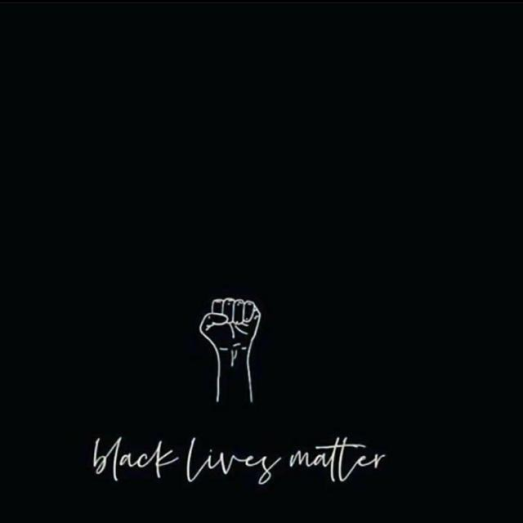Statement – RNAO stands together with our Black sisters and brothers
Colleagues, on Tuesday I wrote that I can’t let go of the image of George Floyd gasping for air and pleading for his life – “I can’t breathe.” And as I said, that image evokes the immense brutality, insanity and terror brought about by anti-Black racism and all forms of systemic racism in our midst. RNAO released a statement that I am reproducing in full below. I am also encouraging our readers to take action and vocally speak this weekend, and always, against anti-Black racism and all forms of hate, discrimination, prejudice and violence:
• Speak out in social media using hashtags such as #ICantBreathe and #BlackLivesMatter
• Sign a petition against racism and police brutality, like the one here
• Read, educate yourself and take action – I found this article useful, although its focus is the United States
• Read resources for ending anti-Black racism from a Canadian women’s perspective
• Read about institutionalized racism
• Check out the National Museum of African American History, especially the section on “Talking about race”
• Write a letter to your local newspaper or call a local radio or TV station
• Call or write to your federal, provincial and municipal representatives
• Join many Canadians who are participating in peaceful and powerful vigils and protests while keeping proper COVID precautions – use a mask, keep physical distancing at all times, and try to isolate after that, just in case you got the virus despite your precautions (note: there has been some advice about potential violent infiltrators in Toronto protests, unrelated to organizers – act with caution)
• Join my weekly webinar – on June 15 we will focus the webinar on taking action against racism

Statement – RNAO stands together with our Black sisters and brothers
RNAO mourns the death of George Floyd and all those who have succumbed to anti-Black racism and violence. RNAO stands together with sisters and brothers who continue to suffer the scourge of anti-Black racism and discrimination everywhere. RNAO unequivocally condemns racism, oppression and discrimination in all forms. In light of recent atrocities in the United States, Canada and around the world, we stand in solidarity with the loved ones of those who have suffered at the hands of law enforcement and those who experience gross inequities because of the colour of their skin.
RNAO’s Policy Statement on Racism (2002) states that racism is systemic in our society and endemic in our institutions. Racism excludes people from decision-making processes and leadership and economic opportunities, marginalizing and oppressing them. RNAO reinforces its position that no sector is immune to the ingrained effects of racism—including health care. Nursing has a history of excluding women of colour, who could not even enter nursing school in Canada until the 1940s.
RNAO marked a milestone when Dr. Jocelyn Hezekiah, a leader in nursing education, became RNAO’s first Black president (1979-1981). In 2003, she authored Breaking the Glass Ceiling: The Stories of Three Caribbean Nurses, a book showcasing how these nursing leaders paved the way for Black nurses to be recognized in their own right in the Caribbean and internationally.
The struggle to achieve equal access for women of colour to professional development, training, promotions and leadership roles remains unfinished. RNAO released its Organizational Statement on Diversity and Inclusivity in the spring of 2007. It commits to “…providing an environment that is free from racism, prejudice, discrimination and harassment. We strive to reflect the diverse communities within our organizational structure (board, staff members and students) and to promote equitable access to the programs and services we offer.”
The late Dr. Joan Lesmond, a prominent Black Canadian leader and an RNAO past-president (2004-2006), launched the project that led to RNAO’s Embracing Cultural Diversity in Health Care best practice guideline (BPG). Among its recommendations, the BPG asks health-care providers to: “State and continually explore, through reflection and feedback, how one’s own biases, personal values, and beliefs affect others.” It also calls on providers to: “Recognize and address inequitable, discriminatory, and/or racist behaviours or institutional practices when they occur.”
As Black Canadian leader and current RNAO president (2018-2020), Dr. Angela Cooper Brathwaite, states: “For too long, many nurses and their clients have suffered the injustice of systemic racism in Canada. We must be drivers of positive and sustained change for future generations. We must call on the nursing profession and the broader public to examine how racism manifests in and beyond our health-care system, and advance evidence-based practice to achieve more equitable population health outcomes.”
RNAO CEO Dr. Doris Grinspun says RNAO is dedicated to achieving health equity in our system, and advocates for the examination of policy issues through a ‘social determinants of health’ lens. “RNAO commits to raising public awareness about racism and violence, with particular attention to violence most recently experienced by people of colour. We must put a spotlight on injustice, and mobilizing to enact real change."
The COVID-19 pandemic has invoked fear, and has led to uncertainty and hardship in the lives of many Ontarians. This has been compounded by the recent, tragic events that illuminate the inequities and prejudice that remains deeply embedded in our society. The pandemic has exacerbated social and economic inequities that exist in our system, and it is widely known that the virus has disproportionately affected Black and other marginalized groups.
“As we seek a return to a new normal,” Grinspun says, “this cannot be a ‘normal’ defined by deep-rooted racism, violence, discrimination and injustice. We must stand united and say: No more.”